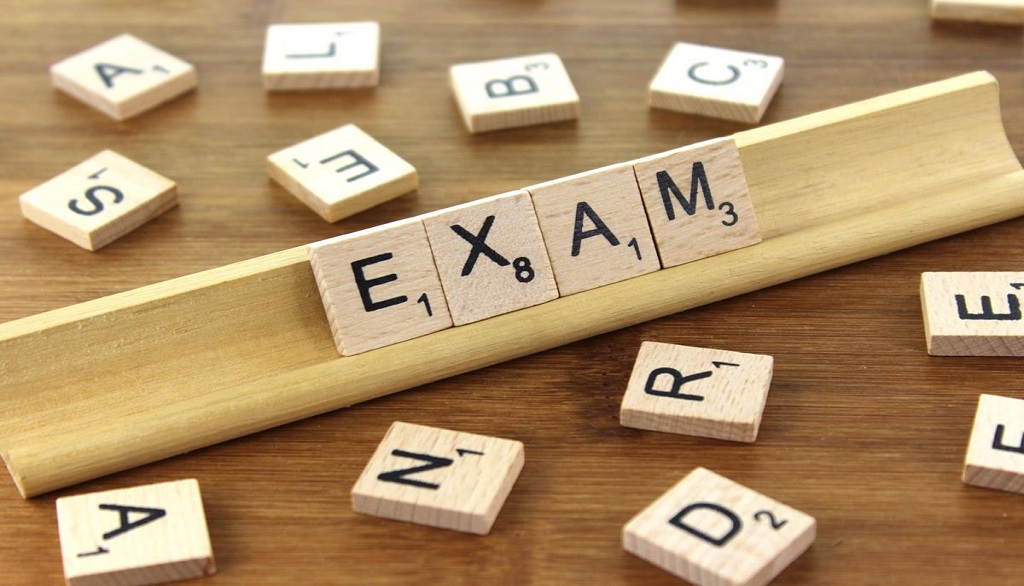By: Phillip Mattie
English exams, as I have said in previous articles, are tricky–especially those pesky novel studies. So far in these articles for the Calgary Tutoring Centre, I have looked at how to study for an exam and how to review fiction. I’ve also explained the benefits of finding a good English tutor. But I have never really explained some great go-to tips for when you will actually sit down and begin writing it.
For this particular article, I will cover what you absolutely need to do on your exam in order to get a good grade. And believe it or not, these tips, while excruciatingly straight-forward, are stunningly absent from most students’ exam writing handbag. So here they are, the five absolute musts for your novel study exam!
Novel Study Exam: Tips & Ideas
Eat something before your exam
This one is painfully obvious and the most practical of the lot. I was told in an almost insultingly off-hand way in my third year of university to eat a banana and a granola bar, and maybe have a small coffee, before an exam.
It was like someone had flipped a switch. I never got tired and I was able to stay alert and focused for the duration of all of my exams since then. I cannot recommend doing this thing enough. Just make sure that you eat the right food–fruit for the quick energy, nuts for the slow burn, and coffee for the caffeine.
I know that high school can be a chaotic place, and getting and going to classes is a hectic process, especially if you have just finished up the obligatory 3k run around the golf course. Just do your best to get something into your system before an exam.
Do not stray from the given topic
You will only have one topic to write on during an exam, so make sure that you write on that topic. I know that, during a GED exam, if you do not write on the given topic or fail to address the topic adequately, you will receive a failing grade. Your English teacher may have a similar policy.
One good way to make sure you address the topic given on the exam is to give background information on it in your introduction. If you give background information on the topic, you will never, ever be accused of writing off-topic. Also, giving background information on your topic will help get your brain into writing mode!
Choose your vocabulary carefully
When you sit down to write your exam, the words you write on the page will score you marks. Make sure you use those words in the correct context and are not just grammatically correct. What do I mean when I say “Make sure those words are used in the correct context”? Because your exam is for English and is in the English language, the words you select need to be used properly. For example, don’t say ‘literally’ when you mean ‘figuratively’–a very common mistake among the speech patterns of almost every English speaker everywhere.
Additionally, if your English tutor is actively working to build your vocabulary by asking you to define complicated words on one portion of your exam, try using those words in the written portion. You may just score some bonus points; I know that my English teacher used this tactic.
Maybe yours will, too. Finally, don’t use a word when you don’t know its definition. Find a word that fits your need where you know its definition. An exam is not the time to use complicated vocabulary; just stick to what you know and studied.
Begin paragraphs with topic sentences
Never begin a paragraph with an example. Always begin with a topic sentence. If you have been reading my articles even semi-regularly, you will know how important this tactic is. Remember that you generate topic sentences in your brainstorming stage and they do not include any examples of any kind, no matter what.
Topic sentences act as a heading for your paragraphs, as you can see in this article, and should not be confused with details that support a topic. Having an example as a topic is confusing to the reader because there is no continuity between ideas and no indicator of a switch in ideas, so it should be avoided.
Give valid examples from the text
This tactic is the one where all of your preparation and studying comes into play. These earmarked pages and highlight-stained lines are in the reserve position for this moment. Remember, only the supporting details of any written exam in English will contain examples from the text. Don’t simply plop in examples from the text in your introduction or conclusion, and certainly don’t include them in topic sentences. Write your introduction, give your first topic sentence, and then give an example from the text. It also helps improve your reading and comprehension ability.
As my heading states, use only valid examples.
Avoid going off-topic.
Fortunately, you can stay on-topic by simply picking big moments from the piece of fiction you are writing on. These “big moments” are shifts in plot or are iconic in some way (for some reason, my mind is wandering to the scene in Macbeth—you know the one. He sees the dagger in front of him (2.1.33-35). I also move towards the timeless line, “Tomorrow, and tomorrow, and tomorrow” (5.5.19).) You should have notes and highlights aplenty on these moments.
All of these tactics will surely help you on your next novel study exam. From the practical “Eat something before your exam” to “Give valid examples from the text,” these tactics will ensure your success. Keep in mind that you still have a lot of work to do before your exam! Finding plot points, shifts in plot, and good character analysis all require a lot of understanding. And, you won’t be able to write on a text that you don’t understand. The real challenge here is not the exam. It’s the fact that you have a lot of work to do before the exam. Also, you need to maintain your concentration while writing it.
Good luck for your novel study exam.



